Iraqi security forces must keep peace amid protests, top Shia cleric says
Iraq’s most prominent Shia cleric Grand Ayatollah Ali al-Sistani has called on security forces to avoid using excessive force in the wake of anti-government protests that have entered their third week.
In a statement read out by his representative Abdul Mahdi al-Karbalaei during a sermon in the holy city of Karbala on Friday, Ayatollah Sistani held security forces accountable for any violent escalation, and urged the Baghdad government to respond as quickly as possible to demonstrators' demands.
#عاجل_الغدير
— قناة الغدير (@alghadeer_tv) November 8, 2019
المرجعية الدينية : لوحظ ان معظم المشاركين في الاحتجاجات يراعون سلميتها فينبغي توجيه القوة بالكف عن استخدام العنف ليبقى المشهد سلميا@alghadeertv
“Peacefulness of protests in their various forms should be paid a great attention. The biggest responsibility is on the security forces. They must avoid using excessive force with peaceful protesters,” the revered cleric said.
#عاجل_الغدير
— قناة الغدير (@alghadeer_tv) November 8, 2019
المرجعية الدينية: المحافظة على سلمية الاحتجاجات بمختلف اشكالها ويجب ان تحظى باهمية كبيرة والمسؤولية الكبرى تقع في ذلك على عاتق القوات الامنية ولا سيما العنف المفرط الذي يؤدي الى عواقب وخيمة@alghadeertv
Ayatollah Sistani also said there should be “no more procrastination.”
“The political apparatus has a unique opportunity to respond to citizens' demands with an agreed roadmap,” he said in the sermon read out by his representative.
Protesters in Iraq have directed their rage at a class of elite leaders, whom they accuse of pillaging the oil-rich country's wealth while the population grows poorer.
The protests, which began more than a month ago, have often turned violent, with security forces opening fire and protesters torching government buildings.
Last week, President Barham Salih said Prime Minister Adel Abdel Mahdi was willing to resign once political leaders agreed on a replacement. He also called for a new election law and said he would approve early parliamentary polls once it was enacted.
But as the protest movement has dragged on, top leaders meeting in Baghdad, the holy city of Najaf and Erbil, the capital of the semi-autonomous Kurdish region, appear to have reached a consensus over the premier staying in power.
Senior cleric Muqtada al-Sadr, who had been supporting the protests and had demanded the government resign, has gone silent as well.
On Thursday, state-run al-Iraqiya television network aired a recorded address by Abdel Mahdi to cabinet ministers in which he discussed the 2020 budget.
The embattled Iraqi prime minister has proposed a series of reforms to appease protesters, including hiring new civil servants, raising welfare and launching infrastructure projects.
Hamas blasts Western media for blindly defending false Israeli narrative
ElBaradei condemns US threats of military action against Iran
‘No two-hour war’: Iran vows immediate retaliation to any attack
VIDEO | US warmongering threatens stability
Pezeshkian: US must end provocations if it seeks genuine diplomacy
Iran summons German ambassador over Merz’s ‘low-minded’ remarks
Iran's Armed Forces warn EU of ‘consequences’ of IRGC designation
Iran FM: EU’s blacklisting of IRGC a ‘major strategic mistake’





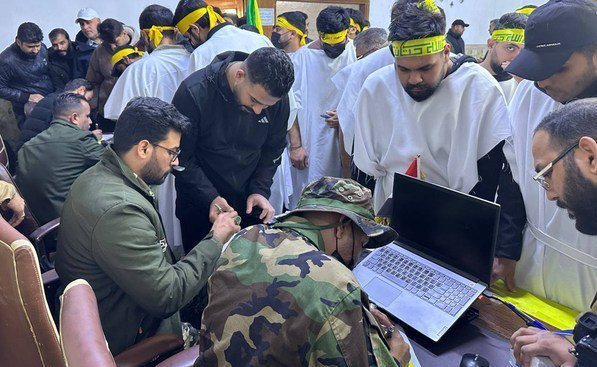
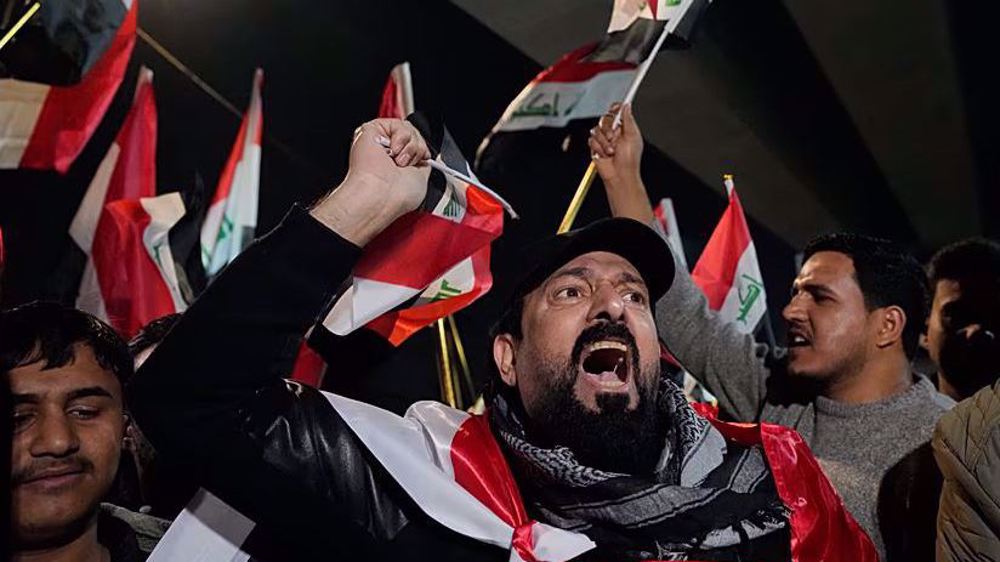
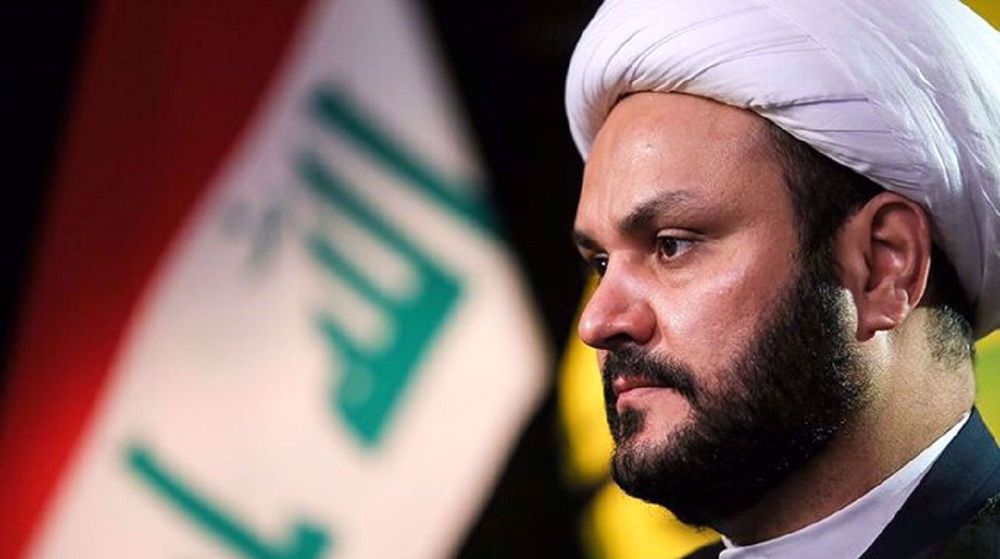




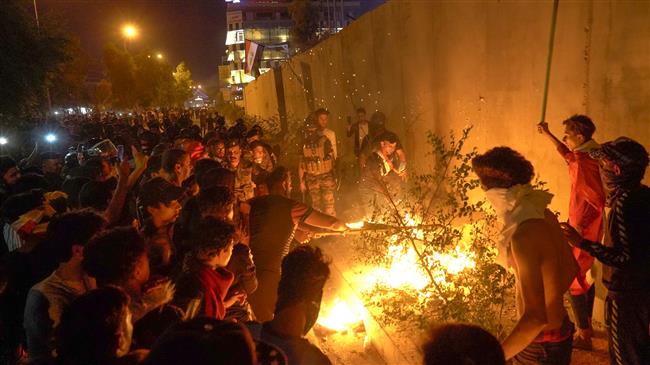

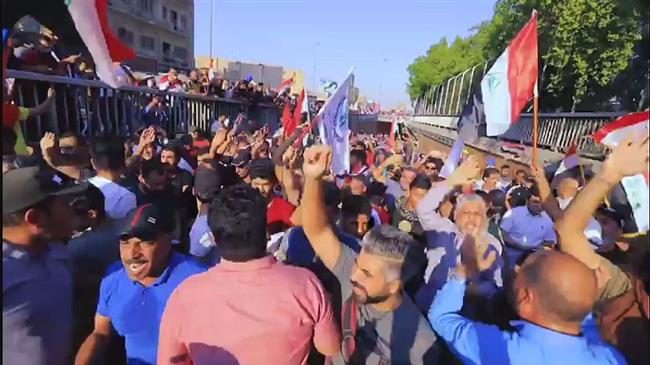


 This makes it easy to access the Press TV website
This makes it easy to access the Press TV website